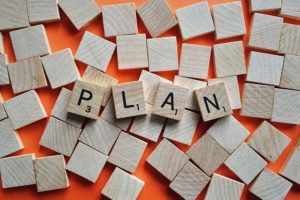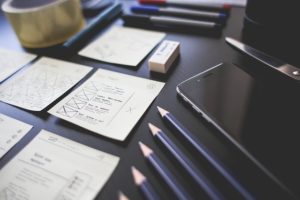We have so much to learn throughout our lives, whether it be preparing for a test in school, training for a new job, working on a new project or, planning for a career growth. In today’s fast paced life, time often comes at a premium and being able to efficiently learn new information and gaining knowledge is an important factor to get ahead in life.
Following learning ideas may help get you more out of your learning efforts.
What would you like to learn?
There is so much to learn.
Read as much as you can. Reading opens up new vistas & expands learning choices. It is a good idea to keep listing what you wish to learn.
Deciding where to focus is important
Apply the 80:20 rule. Out of the listed choices prioritise which are important for you in present phase of life. Select top 20% of the total list based on your prioritisation. Focus on the prioritised items only.
Plan your learning
 “There are two paths you can go by.” You can take an unplanned approach to learning, or you can put in a bit of planning and find an optimum path.
“There are two paths you can go by.” You can take an unplanned approach to learning, or you can put in a bit of planning and find an optimum path.
Set goals
Setting your learning goals is important. decide what level of competency you would like to achieve and what is your time frame.
Allocate learning time
Learning is only one facet of the average adult’s daily life. You need to organize your time and tasks else you might find it difficult to fit time in for learning. Plan your time and balance your learning, working and living.
I do not have time = I have not planned or, I have not tried
Internet is the store house of information & knowledge. Also, there are so many new ways to learn that offer great choices with respect to cost & time. Try new methods like webinars, online learning or, distance learning. You can always find a method that will fit your requirements.
Try to find alternate materials to study from; videos, PowerPoint presentations, maps, etc.
Understand the whole & than the parts
Understand the big picture, and have it in front of you as you examine smaller details.
Use information pyramids
Learning happens in layers. Learn the right things first.
Learn the basics. Build base knowledge upon which you can add advanced concepts.
Start from simple, then go to complex
Create the right environment
Listen to music
Researchers have long shown that certain types of music are a great “key” for recalling memories. Information learned while listening to a particular song or collection can often be recalled simply by “playing” the songs mentally.
Have pleasant smells around
It sets you in the right mood to learn. Also, smells are known to trigger memory through information linking.
Collaborate
If studying by yourself isn’t working, get a partner. It will also reduce the cost if you are opting for a method where cost can be shared (webinar or, books as examples). Most importantly, you could discuss & clarify a lot of points and learn better.
Prepare for learning
Take a shower
It loosens you up, making your mind more receptive to new learning & new ideas.
Select the right time
We have our own individual best learning time. recognise & use it.
Teach yourself
Don’t wait for someone to teach you. learning is most effective when you’ve pre-introduced yourself to concepts. Preview the subject to get a macro view of what you will be learning.
Use highlighters
Use highlighters to emphasize pieces of the material that are especially important. Colour-coding is often useful as well.
Take notes or make illustrations in the margins. If it is a book, it is good idea to take notes in a separate notebook.
if you use Kindle or, any other book reader, you will find many ways to highlight the important texts for your reference later.
In the classroom sessions
Shake a leg
Lack of blood flow is a common reason for lack of concentration. If you’ve been sitting in one place for awhile, move or, bounce one of your legs for a minute or two. It gets your blood flowing and helps both concentration and recall.
Take a break
Changing your perspective often relieves tension, thus freeing your creative mind. It helps to lighten the invisible stress that can sometimes occur when you sit in one place too long. Taking a small break every one & a half hours during study sessions is more beneficial than non-stop study. It gives your mind time to relax and start fresh again.
Change your focus
Sometimes there simply isn’t enough time to take a long break. If so, change subject focus. As an example: alternate between technical and non-technical subjects.
Laugh
Laughing relaxes the body. A relaxed body is more receptive to new ideas.
Avoid visual distractions
Looking out the window or at the person in front of you will not help you learn the subject at hand.
Use illustrations
Make illustrations as you take notes. Draw pictures to help you visualize information. Graphs, maps, and images are helpful in retaining information.
Review & organise
After class, review and organize your notes. This will help you to sort out the information in a way that is meaningful to you and will make it easier to refer in future. If you have taken notes in a separate pad or, notebook, it is a good idea to attach a copy with the learning material.
Retain more & better
Use tools
Mind maps are a great help. T hey offer a compact way to get both an overview of a subject as well as details. With mind maps, you can see the relationships between separate ideas and they can also act as a receptacle for a brainstorming session.
hey offer a compact way to get both an overview of a subject as well as details. With mind maps, you can see the relationships between separate ideas and they can also act as a receptacle for a brainstorming session.
Prefer writing than typing
While typing notes into the computer is cool, for many persons writing by hand stimulates ideas. Even in today’s commuter age, writing works wonders. It may work for you too. Check yourself.
Have a learning journal
This isn’t exactly the same as a notebook. Journal has to do with tracking experiences over time. If you add in visual details, charts, mind maps, etc., you have a much more creative way to keep tabs on what you are learning.
Use the right type of repetition
Complex concepts often require revisiting in order to be fully absorbed. Repetition of concepts & theory with various related examples improves absorption and speeds up learning.
Visualise
When trying to learn or memorize a piece of information, close your eyes & try to visualise it.
Check the learning
One way people can learn efficiently is to accurately evaluate their learning and decide how to proceed further. This ability is known as “meta-comprehension”.
Quiz yourself
Testing what you’ve learned will reinforce the information.
Challenge yourself
People are often more intelligent than they realise. In the present day world, sometimes one may not be confident. Genius can be found in many walks of life, but the ability to learn is far, far more important than what you already know.
Use your learning
Try to use what you have learnt at the immediate possible opportunity.
It is better to try the first usage in controlled conditions like: friends, family, closed group, within department. After you gain confidence, you could put it in practice in more challenging environment.
Teach others
The best way to learn something better is to teach it to someone else. It forces you to learn, if you are motivated enough to share your knowledge. Moreover, it clarifies a lot for yourself and also gives new insights to the subjects at hand, hitherto hidden.



